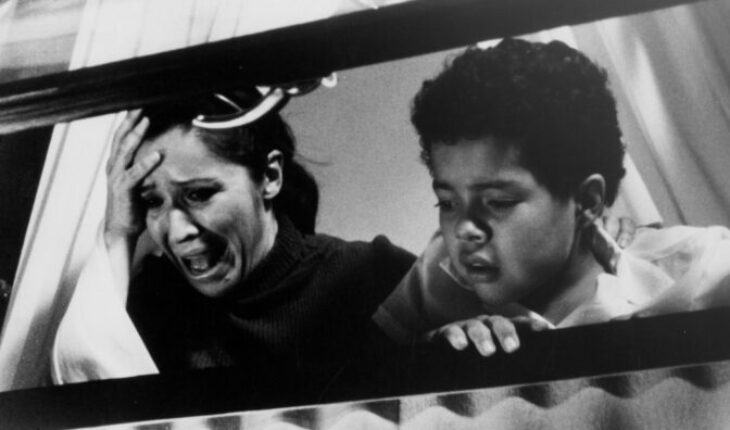In order to keep alive in the memory what happened about the massacre of Tlatelolco, these, films and books were created.
Photography/Capture/Red Sunrise
Martha Dalay Soto
Morelia, Michoacán.- The slogan “neither forgiveness nor forgetting”, has become one of the most famous slogans in the history of our country, because they are associated with a fact that left a great stain of blood among Mexican society; The Tlatelolco massacre is, 55 years after what happened, in a crossfire between the memory of a few and the oblivion of many.
Today marks 55 years since a group of grenadiers attacked a Student Movement that only sought the opening of spaces that will promote citizen participation in political and social issues of contemporary Mexico by the Government, and although now there is no Olympic Games in between, A good percentage of society ends up prioritizing other issues instead of this one.
In order to keep alive in the memory what happened, some authors, directors, actors and journalists created the following material.
Productions such as films, series and documentaries:
Filmaffinity
Rojo amanecer (1989): Directed by Jorge Fons
This film narrates how the lives of thousands of people drastically changed when they experienced firsthand the massacre of Tlatelolco and its subsequent events.
Premiere Cinema
Tlatelolco, verano del 68 (2013): Directed by Carlos Bolado
During Mexico’s 1968 student movement, a rich girl and a poor young man fall passionately in love.
Premiere Cinema
El grito, México 1968 (1968): Directed by Leobardo López Arretche
It is a testimony about the student movement of 1968 in Mexico City, from the month of July until the massacre of October 2 in Tlatelolco. Images of the demonstrations and repression until culminating with the inauguration of the XIX Olympic Games.
IMDb
Erase Memory (2010): Directed by Alfredo Gurrola
This film tells a love story that transforms into a search for truth in the context of the student massacre of October 1968. A journalist undertakes the task of clarifying the crimes, more than 40 years after the events, in dangerous conditions.
“Olimpia” (2018): Directed by José Manuel Cravioto
This film offers a different approach to the Tlatelolco Massacre by exploring the perspectives and thoughts of young protesters seeking a better country.
Amazon Prime
A Strange Enemy (2018): Directed by Gabriel Ripstein
This series recreates the student movement of 1968, following the life and career of Fernando Barrientos, inspired by the Mexican politician Fernando Gutiérrez Barrios, who was in charge of the operation on October 2.
IMDb
The Lost Rolls (2012): Gibrán Bazán
This documentary focuses on clarifying the mysterious disappearance of films made by filmmaker Servando González before and during the events of October 2, 1968 in Tlatelolco. In addition, it explores the theory that the fire that consumed the old Cineteca Nacional in 1998 may have been ordered by the government to disappear such material.
It may interest you: 55 years after the Tlatelolco massacre, these were the facts
Books:
Era Editions
La noche de Tlatelolco, de Elena Poniatowska.
Testimonies that provoke irritation, anger, pain and indignation, summarized by the famous Mexican journalist and writer. Perhaps the most authoritative and referred book about October 68.
Special
El león que se agazapa, by Norberto Trenzo.
Fictionalized chronicle, which from the acts of three students and a journalist reveals initial circumstances and, above all, the derivations of the repression of the Movement of 68 and also, the overwhelming restlessness and hopelessness for the persecution of the authorities to the student disagreement.
Amazon
Los días y los años, de Luis González de Alba.
An indispensable testimony of one of the protagonists of October 68. Chronicle structured in two narrative planes: first, summary of the activities of members belonging to the General Strike Council; second, description of the author’s time in Lecumberri prison.
Amazon
Mexico, a utopian democracy, by Sergio Zermeño
Deep and precise analysis of the causes, development and consequences of 68 in Mexico. Essay study of obligatory reference for investigators of the facts.
Amazon
Democracy in the street. Chronicle of the Mexican student movement, by Gilberto Guevara Niebla.
The author shows a deep capacity for analysis where emotion plays a key role. It also reflects on thes preambles and derivations of social awareness in the student sector in the 60s.
Amazon
Death of Aurora, by Gerardo de la Torre.
Political novel that tells the story of some militants of the Mexican Communist Party, who seek to teach the workers of their company about the random events of repression against the students on October 2, 1968.
Amazon
The witnesses, by Emma Prieto.
Fabulation of the reunion of two former militants of the student movement who after a decade make a balance of the events of 68. One tries to convince the other to join the left as a member of an extremist party. Betrayals of the past come to light, which are encrypted in an attempt at revenge.
Amazon
The imperial presidency, by Enrique Krauze.
The figures of the glorification and fall of the PRI predominance are exposed: the jurisdiction of the official party, the complicities of social groups, despotism, the comedy of power, the abolition in the facts of democracy (events of 68) and the submission of national politics to the head of the Executive.
Amazon
The 68. The tradition of resistance, by Carlos Monsiváis.
Count of marches, rallies, slips and individual gestures on the Movement of 68. Critical notebook on the actions of October 2, 68.
Planet of Books
68, by Paco Ignacio Taibo II.
Emotional tribute to the participants, companions of the author in those days. It emphasizes the student profile of the movement of ’68.
Amazon
The 68, the students, the president and the CIA, of Sergio Aguayo.
Document that reveals the peremptory interference of the United States and the CIA in the provisions of then President Gustavo Díaz Ordaz. Controversial book by one of the great critics of the Mexican political system.





